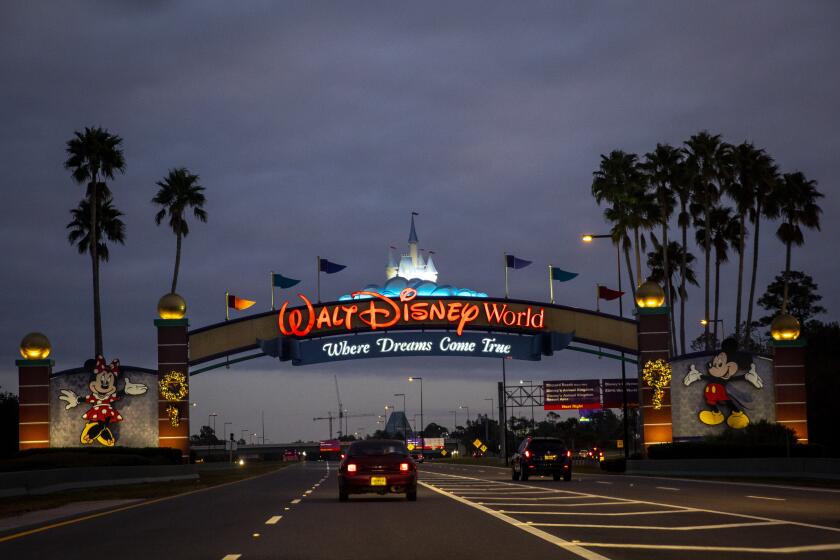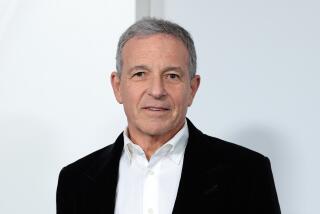What did Disney actually lose from its Florida battle with DeSantis?

Standing at the podium at a fire station in Florida’s Lake Buena Vista — home to Walt Disney World — Gov. Ron DeSantis this week declared victory in his ongoing fight against Disney. “Today the corporate kingdom finally comes to an end,” he said.
By “corporate kingdom,” DeSantis was referring to the sprawling theme park’s long-standing system of self-governance, an arrangement established more than 50 years ago that helped land the entertainment giant in Florida and make it the Sunshine State’s largest private employer.
Under legislation DeSantis signed Monday, the state of Florida took control of the Reedy Creek Improvement District, which essentially operated as Disney’s private municipal government in the area containing Walt Disney World and other parks. The move is widely seen as retaliation against Disney after the company, facing internal pressure, criticized a Florida education law known by critics as “Don’t Say Gay” because of its restrictions on classroom instruction on gender identity and sexual orientation in kindergarten through third grade.
The district formerly known as Reedy Creek now has a new name and a board whose members are picked by DeSantis. Under the previous system, the Reedy Creek board was essentially selected by Disney.
For DeSantis, who has been using the Burbank entertainment company as a foil on cultural issues, the move is a public relations coup among conservatives as politicos widely expect him to run for president in 2024. It came just as DeSantis was about to publish his book, “The Courage to Be Free.”
But what did Disney actually lose from its battle with DeSantis?
Current conflict is the latest to reveal underlying tensions that have existed between Disney and religious conservatives for decades as it has embraced the LGBTQ community.
Although the new law delivers some significant changes, the most crucial one is the canceling of a previous mandate that would have resulted in the total dissolution of the district. That earlier law, which DeSantis and state legislators rushed across the finish line in a sprint last spring, would have left taxpayers in Orange and Osceola counties, the two counties Disney straddles, saddled with debt owed by the district.
“That was something that a lot of people were worried about,” said Jacob Schumer, an attorney specializing in Florida local government and tax laws who has written about the bond-debt issue. “Nothing is going to change. The disaster that was gonna hit the county and the taxpayers around here other than Disney — it’s not going to affect them.”
Representatives of Disney and of DeSantis did not immediately answer requests for comment.
But the law does change who controls the government overseeing Disney’s kingdom in the state, which could be a harbinger of looming battles as tension mounts between the company, which has increasingly embraced progressive social issues, and the conservative state that has taken up leading a crusade against what it describes as “woke ideology.”
The new roster of board members, whom DeSantis named Monday, includes Bridget Ziegler, a conservative education activist and co-founder of the right-wing group Moms for Liberty; Ron Peri, chairman of the Gathering USA, a Christian ministry; and three attorneys, including the president of the Federalist Society’s Orlando chapter.
“He appointed cultural warriors, Christian national-types. That’s not an overstatement,” said Richard Foglesong, a political scientist and the author of “Married to the Mouse: Walt Disney World and Orlando.”
Hyundai’s and Kia’s popular new EVs are turning heads and sales were skyrocketing — until the Inflation Reduction Act took their customer rebates away.
In recent years, Disney has overhauled its products and amusement parks, drawing the ire of conservatives.
Visitors to the Magic Kingdom’s fireworks show are now met with a gender-neutral greeting, a departure from previous welcomes addressing “ladies and gentlemen, boys and girls.” The company has also revamped older attractions criticized as insensitive, including the Jungle Cruise and Pirates of the Caribbean, and is transforming Splash Mountain into a new “Princess and the Frog”-themed ride after years of complaints about the racism prevalent in “Song of the South,” the 1946 film that inspired the ride.
The appointees — whom Foglesong likened to appointees to airport authorities or a public works department — don’t have say over Disney’s products. But they could leverage their positions in Florida’s ongoing culture war clash with Disney in any future requests the company makes for roads, new projects or other ventures.
“That’s a combustible mix, it seems to me, to have people who are censors who are working as supervisors for an arm of the Walt Disney company,” Foglesong said.
The law also changed the special district’s name from the Reedy Creek Improvement District to the Central Florida Tourism Oversight District. In addition, the bill removed some other periphery privileges, such as prohibiting Disney from building a nuclear power plant or an airport at the resort, which the company was unlikely to ever use.
“I think [Disney is] more threatened now than I imagined they would be,” Foglesong said, pointing to the slate of appointees. The New College of Florida in Sarasota, where DeSantis is embarking on a mission to overhaul the small, progressive school into a model of conservatism, is a cautionary tale, he added.
But in other ways, it’s mostly business as usual, at least for now, experts say. Many essential privileges that made Reedy Creek unique remain intact, including the ability to issue bonds. “Those are the special things about what Reedy Creek did,” Schumer said.
Florida’s Senate on Wednesday voted to dissolve the Reedy Creek Improvement District, which allows Disney to function as its own government.
Reedy Creek was born in part from the lessons that brothers Walt and Roy Disney learned from operating Disneyland in Anaheim, which opened in 1955. Their ambitions were curtailed by government red tape, having to work with the city for public services and on zoning issues.
As the brothers looked to expand Disney’s footprint — only 10% of the people who came to Disneyland in California came from east of the Mississippi River — they wanted to have their own self-regulating system. The company eventually settled on Florida and worked with lawmakers to establish the Reedy Creek Improvement District in 1967. The theme park opened a few years later in 1971.
The district, spanning about 40 square miles in Orange and Osceola counties, provides everything from fire protection and emergency medical services to water systems, flood control and electric power generation. Its boundaries include four theme parks, two water parks, a sports complex, 175 miles of roadway, the cities of Bay Lake and Lake Buena Vista, utility centers, more than 40,000 hotel rooms and hundreds of restaurants and retail stores, according to its website.
What’s ahead for Disney remains to be seen. DeSantis has called upon the board to propose additional changes in authorities and exemptions in a year and again in five years, Foglesong noted.
“Maybe down the road, [DeSantis] will be able to take another bite of the apple and take away powers and exemptions that the Disney company still has,” Foglesong said.
Times staff writer Ryan Faughnder and the Associated Press contributed to this report.
More to Read
Inside the business of entertainment
The Wide Shot brings you news, analysis and insights on everything from streaming wars to production — and what it all means for the future.
You may occasionally receive promotional content from the Los Angeles Times.














